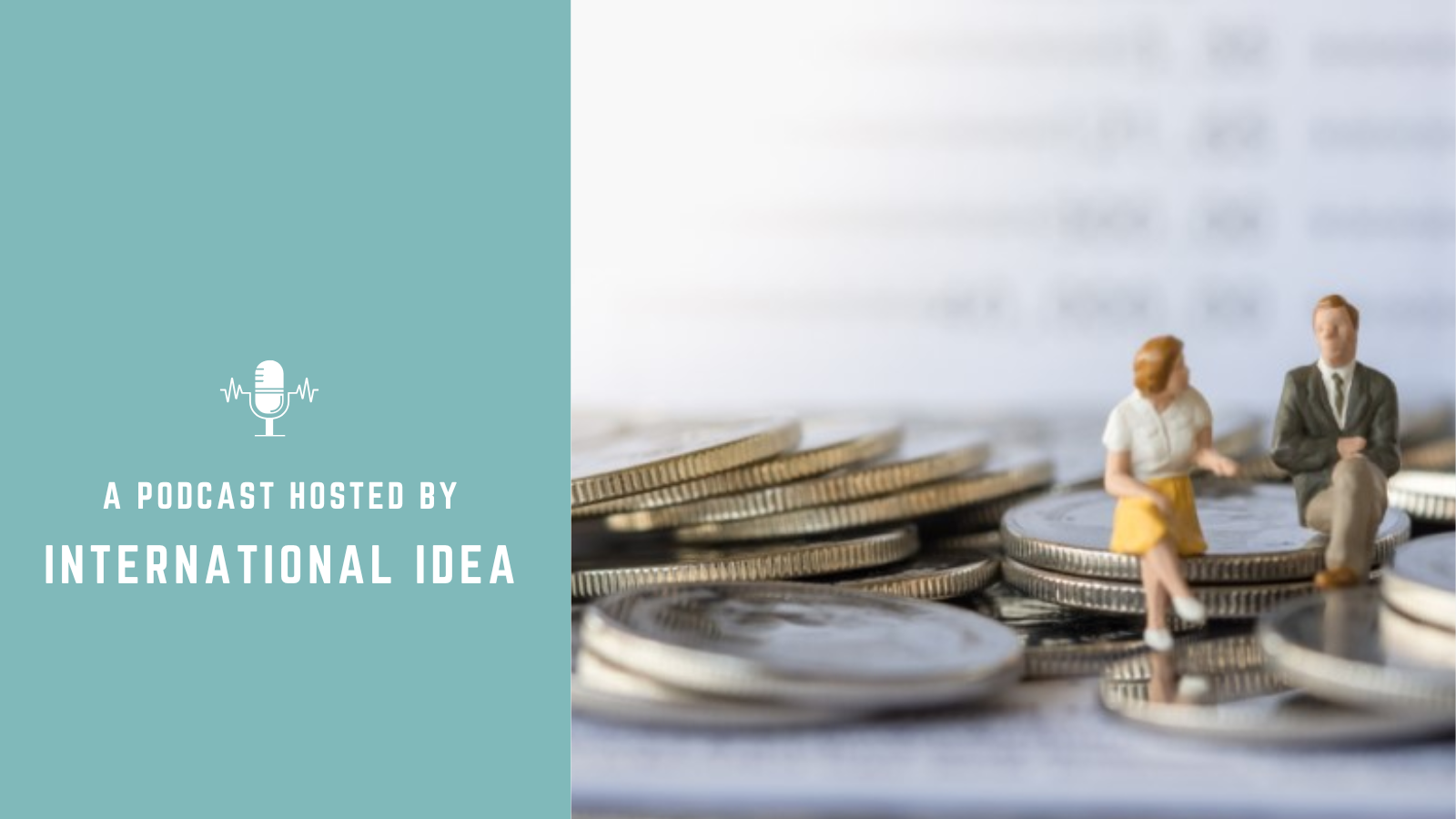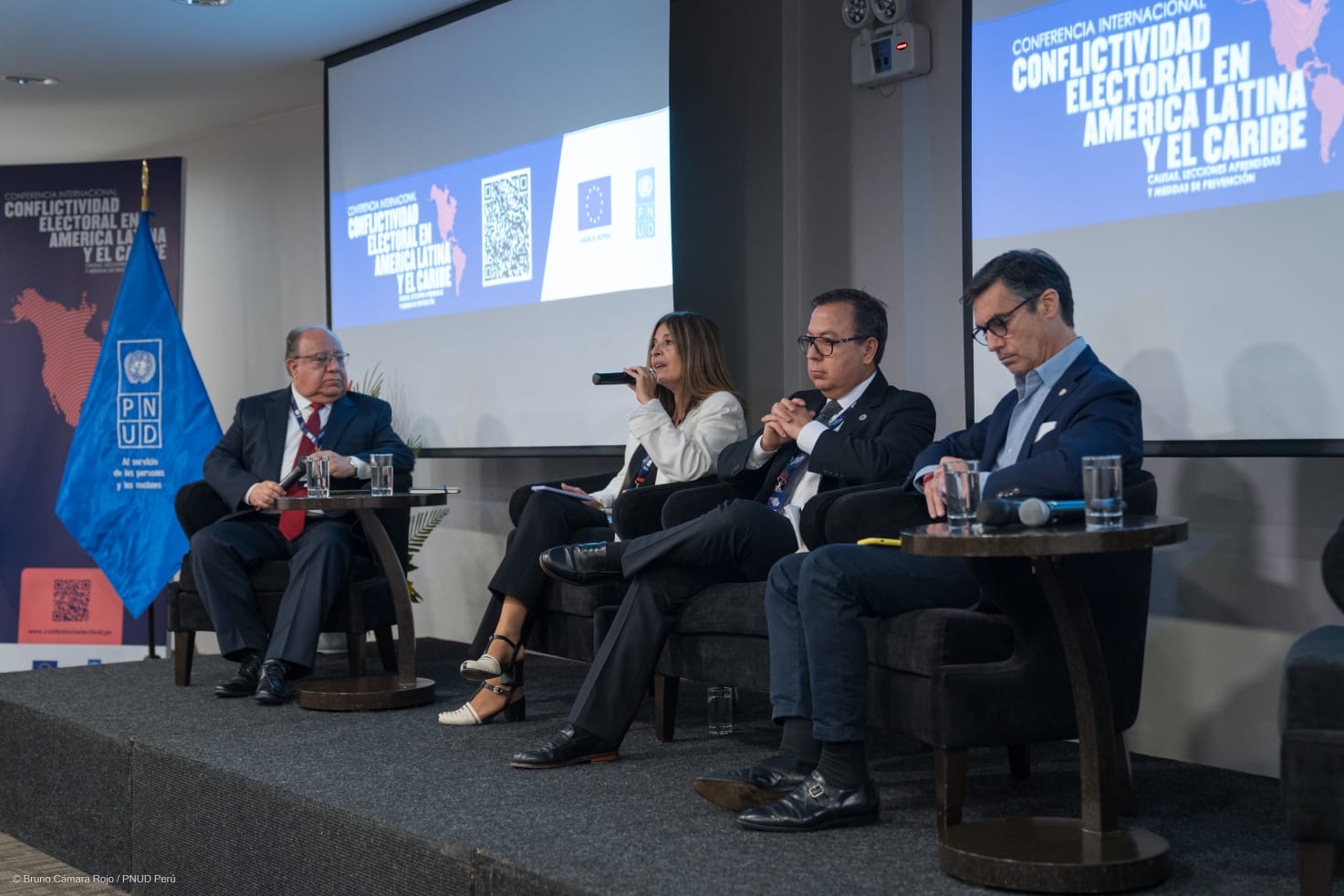On 25 September 2015 the United Nations General Assembly adopted ‘Transforming our world: the 2030 Agenda for Sustainable Development’ (the 2030 Agenda) as an outcome of the UN Sustainable Development Summit. Since the adoption of the 2030 Agenda, development experts, statisticians and organizations have discussed the follow-up and review mechanisms for monitoring implementation of the Sustainable Development Goals (SDGs).
Search
Region
Country
Type
Disclaimer: Views expressed in this commentary are those of the staff member. This commentary is independent of specific national or political interests. Views expressed do not necessarily represent the institutional position of International IDEA, its Board of Advisers or its Council of Member States.
As Press Freedom Day is celebrated around the world, it provides an important opportunity to highlight the importance of a free media for healthy democracies.
What can be done to enhance the participation of refugees and asylum seekers in the political life of their host countries and their countries of origin? What legal and institutional mechanisms are needed to create enabling environments to foster their participation, and which factors might hinder this participation?
Disclaimer: Views expressed in this commentary are those of the staff member. This commentary is independent of specific national or political interests. Views expressed do not necessarily represent the institutional position of International IDEA, its Board of Advisers or its Council of Member States.
What are the current challenges and opportunities for democracy and what role can cities and local governments play in advancing democracy in the 21st century?
REPORT
Panel discussion: Confronting election-related crises through political dialogue
Presentation of a Facilitator’s Guide for Dialogues on Voluntary Codes of Conduct for Political Parties in Elections, 7 March 2018, Brussels.
Morocco’s constitutional reform in 2011 forms the basis of new laws and practices which increased civil participation in the decision-making process, but more remains to be done. How to strengthen the role of civil society organizations (CSOs) as “the cement between government and citizens”?
Resource wealth brings a unique set of challenges often known as the ‘resource curse’—challenges which political parties with informed and comprehensive policy positions are well positioned to help address.
Political parties have an important role to play in ensuring that natural resources are managed transparently, accountably and in the long-term best interests of their countries.
Disclaimer: Views expressed in this commentary are those of the staff member. This commentary is independent of specific national or political interests. Views expressed do not necessarily represent the institutional position of International IDEA, its Board of Advisers or its Council of Member States.
Gender inequality in the political process remains an important problem in all countries.
Women often have less access than men to the resources needed to successfully seek a party nomination or stand in an election, and political parties tend to nominate men to winnable positions.
Unequal political representation of women in relation to men remains a problem all over the world. Just 23 per cent of the world’s members of parliament are women. A major contributing factor to this is the unequal access to the resources needed to successfully seek nominations or participate in electoral campaigns. In a similar vein, political parties are often gate-keepers that promote male candidates that they believe are more likely to attract funding.
The International Women’s Day 2018 campaign theme, #PressForProgress, is a strong call to action amid current world developments. It stresses that efforts to achieve greater gender equality and gender inclusivity are made best and more effectively when in tandem with partners, urging us all to form alliances with fellow advocates and friends.
There is broad consensus that a healthy, sustainable and representative democracy is one that is based on inclusive participation and representation. Gender equality and the empowerment of women in all spheres of life is imperative for development and democratic consolidation.
The advancement of gender equality and the political empowerment of women has been for many years a struggle that is faced not only at the highest political levels, but that has its roots in the basic power relationship among men and women in all interactions in life.
Organized crime networks dedicated to illicit trafficking of drugs, people and wildlife—as well as money laundering and cybercrime, among other activities—are engines of instability.
On 4 May 2017, International IDEA hosted the workshop ‘Political corruption and organized crime: Drivers, effects and responses’ at the 2017 Stockholm Forum on Peace and Development, organized by Stockholm International Peace Research Institute (SIPRI).
Electoral risk management (ERM) should be institutionalized by electoral management bodies (EMBs) as a means of strengthening their capacity to deliver credible elections. To this end, experts recommend the promotion of the ERM concept within a broader electoral assistance scheme.
iKNOW Politics—a partnership of International IDEA, IPU, UNDP and UN Women—is moderating an online discussion on Women's Participation in Local Government from 2 February to 8 March.
On 11 January, International IDEA and the Swedish Ministry for Foreign Affairs (MFA) organized a joint event to familiarize participants - from the MFA Diplomatic Training Program and the European Diplomatic Programme (Croatia, EU delegation)—with the key concepts, opportunities and challenges involved in the democracy support and electoral assistance agenda.


